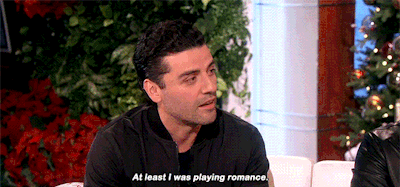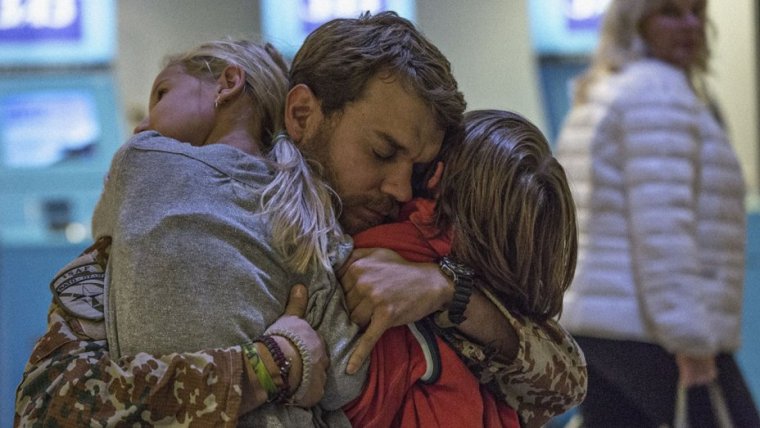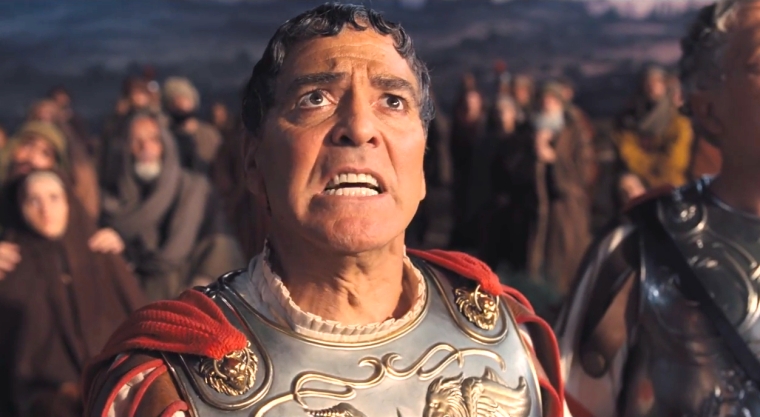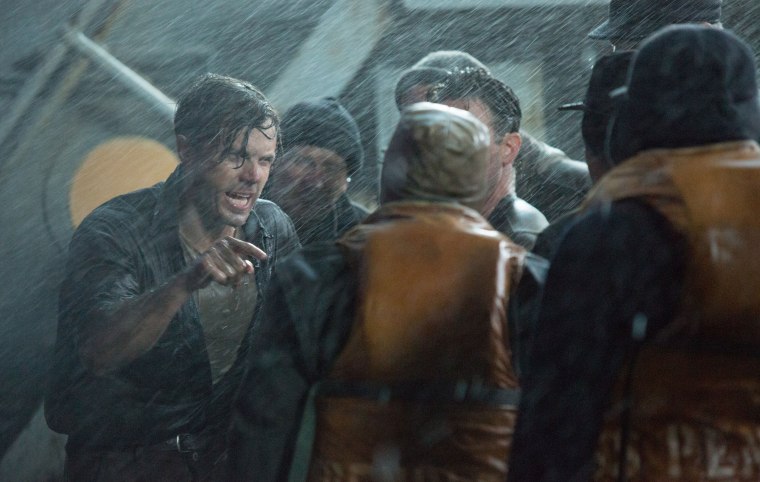Well, a Star War came out. How are we feeling, fam?
I know, I know. There are a lot of feelings going around. And I have a lot of my own. People keep asking me what I thought of the movie because I seem to flip-flop by the hour, so, here is my attempt to search my feelings for what I know to be true.
Two years ago, when I walked out of The Last Jedi for the first time, I was more confused about my reaction than anything else, and I needed several viewings to reconcile with the fact that I actually really disliked – and felt personally betrayed by – the movie. With The Rise of Skywalker, I knew exactly how I felt about it while watching it, but it’s taken me a while to reconcile the fact that there are things I really dislike about it (and things that are honestly objectively bad about it) with the fact that I honestly, genuinely loved the movie.
So, for me, what it all comes down to is this: I believe it is possible to love a thing and also be intensely critical of it. In fact, I’d say that being critical of a piece of media is part and parcel of loving it. That’s what it means to be a fan; whether you’re a fan of Star Wars (OT, PT, ST, and/or everything in between), or simply a fan of movies in general. I also believe that not every story has to be a game-changing revelation or a complex and intricate work of art. Expensive, seven-course restaurant dinners are great. But home-cooked mac ‘n’ cheese can be great, too.
–
Taking a bird’s eye view of the sequel trilogy and the overarching filmmaking process involved therein, I see two glaring issues: One, a general lack of creative cohesion; and two, a more specific inability to narratively reckon with Carrie Fisher’s death.
In terms of creative cohesion, the problem is simple enough to express: Did anybody even bother writing a goddamn outline for this trilogy, like…at all? Without going into specific details – because if you’re reading this, you probably already have a list in your head – the amount of plot points that were set up in The Force Awakens and then brutally scoffed at in The Last Jedi, and then set up in The Last Jedi but blatantly brushed aside or straight-up contradicted in The Rise of Skywalker…it’s staggering, really. The metaphorical middle fingers thrown back and forth between J.J. Abrams and Rian Johnson absolutely ruined any semblance of an arc for the sequel trilogy as a whole. It was not so much a baton-pass between the two directors as much as it was a vicious game of dodgeball. From a filmmaking perspective, that truly is a damn shame.
On the Carrie Fisher front: Fisher’s feminist impact within the science fiction/fantasy realm cannot be understated. If there was one single through-line that was supposed to play out across all three movies, it has been well documented that TFA was Han’s film, TLJ was Luke’s film, and TROS was supposed to be Leia’s film. But Carrie Fisher died before filming began on The Rise of Skywalker, so what do you do when the actor that embodies the character that represents the culmination of the entire Skywalker saga and the apotheosis of the sequel trilogy is unavailable to shoot her scenes?
You can…
a) Recast the role and proceed with the script as planned
b) Kill off the character before the events of the new movie start or in the opening crawl, rewrite the script, and proceed from there
c) Pigeonhole whatever previous footage you have of the actor in said role into the new movie and make whatever adjustments to the script to accommodate
Obviously, JJ went with option C. But from a narrative perspective (ie, setting aside the wishes of Fisher’s family for the sake of this hypothetical)…I honestly wish they had gone with A. At the time of Carrie Fisher’s death, it felt like sacrilege to imagine anyone else playing the role. But now that I’ve seen the final product and gotten a glimpse of what they were going for with the character, I wonder if the movie, the Star Wars saga, the character herself, and fans as a whole would have been better served if Disney had recast the role, worked some CGI wizardry, and then really leaned in to giving one of the most important characters in cinematic history the send-off she deserved. Instead, we got generic B-roll footage of Leia blandly uttering vague lines of dialogue that were clearly left on the cutting room floor for a reason while handing over a lightsaber every five minutes. And as it turns out, desperately trying to shape the heart and soul of your movie around generic B-roll footage doesn’t always work out for the best.
In terms of the more specific gripes I had with the movie:
Editing
Frankly speaking, the editing in this movie was noticeably bad. All due respect to the editors who were tasked with cutting and piecing together one of the largest blockbusters of the modern era within a truncated production schedule, but this viewing experience was pretty rough. Sitting through the movie, I felt like a significant amount of emotional resonance was lost simply because the scene cut away from a big moment before letting the characters – and the audience – sit with our feelings for a couple of seconds. In the first scene of the movie, Kylo Ren murders a couple dozen villagers and unlocks a Sith wayfinder and flies to Exegol and discovers Darth Sidious all in the span of, idk, five minutes?! Whew. When Rey tells Leia she’s going to pick up Luke’s search for the Sith wayfinder with or without Leia’s blessing because “it’s what you would have done,” it’s a beautiful and spunky speech that I specifically wanted to see Leia’s reaction to, but the scene immediately cuts away when Rey closes her mouth. (Which is certainly a problem tied to the above issue regarding Carrie Fisher and the lack of B-roll.) And when Kylo addresses his First Order Board of Trustees and force-chokes a dude straight up to the ceiling, the scene cuts away right as Kylo finishes speaking. What about the dude on the ceiling? Is he still there?? Did Kylo gently lower him back into his chair?? It was just bizarre.
Score
Gonna probably have to change my name, address, and all my social media handles after posting this because I honestly did not love a lot of the musical decisions in this movie. Listen, I’m not a barbarian, I love every single character theme John Williams has ever developed for the Star Wars saga, and I have never before had an issue with “too much John Williams music.” But I think The Rise of Skywalker could have benefited from letting some scenes breath from a score perspective as well as from an editing perspective. Rey’s theme is beautiful, aching, and triumphant, but you don’t need to play it every time she appears on-screen. Kylo Ren’s theme is haunting, tragic, and terror-inducing, but you don’t need to play it every time he appears on-screen. Palpatine’s theme is…well, you get the point. Over-playing these musical cues takes away from the big, emotional heft of playing these themes when Rey has an especially triumphant moment, or when Kylo has an especially terrifying one. Think about the scene (honestly, probably my favorite capital “m” Moment in any Star Wars movie) at the end of The Force Awakens when Rey grabs Luke’s lightsaber out of mid-air. After refusing the call of the Force for the entire movie, she finally picks up the mantle of her destiny. That’s when you cue up the (Burning Homestead version of the) Force theme. Not every. single. time. Rey ignites her lightsaber.
Having said all that, I have obviously still been listening to the soundtrack on a loop since walking out of the movie, because John Williams is a god, etc, etc, and I can’t wait for someone smarter than me to parse out all of the intricate details of this latest score. #TheMaestro
Dialogue
Again, another issue that probably stems mostly from the Carrie Fisher conundrum, because so many of Rey’s lines were just her repeating things that Leia said in more specific language so that the audience wouldn’t notice how vague all of Leia’s lines really are. Honestly, I think the character with the best lines in the entire movie was…C-3PO! Every single line of his generated a full-audience laugh, except, of course, for those that made us all cry. (Too bad that one was in the trailer…and that its emotional resonance was undercut by R2-D2 restoring his memory at the end anyway.)
Resolution
The most unforgivable omission by the end of this movie was that we never. found out. What Finn was trying to say to Rey the whole movie?! I’m sorry, I’m sorry, but that’s not the type of mystery that keeps on giving, that’s a straight-up instance of terrible writing. You cannot leave something so specific and so centrally character-based unresolved by the end of the movie. For the record, in the (100% canon) Resistance Reborn book by Rebecca Roanhorse, Finn explicitly tells Poe that he and Rey are “just friends,” so he can NOT have wanted to tell her that he loves her. John Boyega himself confirmed this on Twitter, and J.J. Abrams specified in a Q&A that Finn was trying to tell her that he’s Force-sensitive.) But, like…did y’all just forget to spell that out in the actual movie?
And then, of course, there was Maz Kanata in The Force Awakens saying that the story of how she came into possession of Luke’s lightsaber was “a good question for another time.” What’s the answer? When’s the time?!
It’s true. All of it.
….Listen, I won’t dismiss the above complaints as mere quibbles. I think some of them are pretty major narrative issues. But it’s interesting to me that I, and all of the Star Wars fans in my immediate circle that I’ve spoken to, walked out of the movie feeling an incredible amount of joy and wonder. (Though it seems like most of my Twitter timeline had the opposite experience, and I fully recognize and respect that everyone has a different opinion. I’m just elaborating on mine!) Certainly, a lot of that comes down to how much mileage you have for what many would call “fan service.” I tend to have a very high tolerance (and appreciation) for fan service moments because, honestly, what would a property like Star Wars even mean without the fandom? Call it a “death of the author” type thing, but I truly believe that fans (and I’m not excluding those who worked on any of these films from that category!) are the lifeblood of a franchise. So, I don’t see anything inherently bad, even from a storytelling perspective, about putting things in a movie that are specifically geared towards making people happy. Making people happy is good. Escapism should be lauded. You know the quote: “The only people who inveigh against escape are jailers.”
I mean, sure, if you have something enormously impactful to say about the nature of heroism or the idea of masks hiding childhood trauma, and you can somehow cram that into a Star Wars movie, wow, amazing, good job. (Alternatively, just watch HBO’s Watchmen.) But I think what it comes down to is this: I don’t need that in my Star Wars movie. In general, the best narratives give us what we need (catharsis) instead of (or in addition to) what we want. And by that metric, which I do ascribe to, I agree that The Rise of Skywalker gives us more of what we want than what we need. But, you know what? I like just getting what I want sometimes, too.
We need to talk about Rey…
I have many, many issues with the way Rey’s character was treated in The Last Jedi (see: my TLJ article, linked up at the beginning of this post), so in my view, there was nowhere to go but up for her in TROS. And in terms of Rey’s parentage, it honestly makes no difference to me whether Rey is a Palpatine or whether she is truly “no one.” If you liked the reveal (as I did) in The Last Jedi that Rey’s parents were nobody of any significance, and that it doesn’t matter who your parents are…then you can stick with that mindset in TROS, since it doesn’t matter that Palpatine is her grandfather. Her arc is still the same; the belonging she seeks is not behind her, it is ahead of her. She needs to make a family for herself, and overcome the darkness within her. Check and check. (For a more eloquent and personal analysis of the beauty of Rey’s arc, check out this piece on the importance of found families by Kate Sánchez over at But Why Tho?.)
There were also some sweet callbacks in this movie to her character in TFA: When Rey wears the old-school X-Wing helmet while piloting Luke’s X-Wing on her way to confront her known destiny, it’s reminiscent of when scavenger Rey put on the old-school helmet while sitting outside her AT-AT home, pondering her yet-unknown destiny. And when Rey uses a piece of metal to slide down into the Lars homestead on Tatooine at the very end of the movie, it reminds us of the very first scene we meet Rey, when she slides down a sand dune on Jakku after digging through the ruins of the fallen Star Destroyer.
(Um, okay. So. It’s impossible to talk about Rey’s arc without talking about The Kiss. To be quite blunt, I don’t want to talk about it because it represents the terrifying validation of all of my deepest fears. At least the movie made it easy enough to literally just blink at the right time and pretend it never happened!!!)
…and also everyone else
Rose. Oh, Rose. Since it unfortunately does not go without saying, I obviously think Kelly Marie Tran is a delightful human being and that she deserves all of our love and respect. I also think that, through no fault of her own, her character in The Last Jedi is wildly underwritten and underserved.* So I was admittedly a bit gratified to see her sidelined in TROS, because I simply had no interest in spending time with what was initially presented as a dull and pointless character. Having said that, I absolutely believe that there is always a need for more diversity in Star Wars, and I’m disappointed in JJ and Chris Terrio for refusing to find a way to breathe more life into this character, and instead lazily and awkwardly sidelining her for the entirety of the movie. My dudes, your job is to make me care about her, not wave your hands and hope she disappears on her own.
Jannah and Zorii: I actually really liked the addition of these two characters. Their backstories and relevance to the narrative were simple but effective, both in the thematic, emotional sense and in the practical, plot-relevant sense. (And they both have ROCKIN’ costumes. Can’t wait to drool over those cosplays!) I’m seeing some chatter about Zorii’s existence essentially straightwashing Poe’s character, but, fam, come on. Have a little imagination! I’ve always seen Poe as the “will flirt with anything with a pulse” kind of a guy, so the notion of him having a past with Zorii didn’t bother me in the slightest.
But hey, now that I mention it, let’s talk about Poe Dameron, shall we?
After the complete decimation of Poe’s character in The Last Jedi (I like the attempted arc of having Poe learn about ~leadership responsibility~, but do you really have to turn him into a complete idiot and an unlikeable misogynist in the process?), I was thrilled to see so much of him being an utter delight in The Rise of Skywalker – cracking jokes, being flirty, being lighthearted but also vulnerable, and actually moving the plot along rather than impeding it. Oscar Isaac is a venerated, veteran actor, and it shows. His facial expressions, his body language…he elevates the emotion of every scene he’s in, and every line he delivers is ripe with layers of meaning and oh my god can we just talk about Stormpilot already??
God bless Oscar Isaac forever and ever, this hero of a man, this pure and precious champion of all that is good and true in the world!!!
What can be said about Oscar “Finnpoe rights” Isaac that hasn’t been said already? Oscar can’t stop, won’t stop talking about how he did his darndest with the material he was given to make his character as queer as humanly possible. And I’d argue that he absolutely succeeded. I mean, the glances of pure longing Poe gives Finn throughout the movie, the whole “jealous boyfriend” act? He didn’t have to sit so close to Finn when they’re flying around in the Millennium Falcon on their married space adventure at the beginning of the movie, he didn’t have to clutch Finn so damn tight when they hug after the final battle, tenderly cupping the back of his head and burying his face in Finn’s neck…but he goddamn well did. And I honestly wonder how much of Poe’s dialogue was thrown in by Oscar out of sheer defiance – when he says to Finn, “I can’t do this alone, I need you in command with me” before Finn can get a word out, Finn pauses briefly to acknowledge Poe’s statement before immediately launching into what he was going to say when they walked up to each other, which to me felt a little like John was just following the script while Oscar was legit throwing out a Finnpoe proposal before anyone could stop him…And the whole mystery of what Finn wanted to tell Rey might not have been such a glaring plothole if Oscar hadn’t kept bringing it up every five seconds whenever there was about to be a scene change…
Okay, okay, now I’m sounding a bit like a raging conspiracy theorist. But what is undoubtedly neither a conspiracy nor a theory is that Oscar Isaac gave a very intentionally queer performance and that is beautiful and perfect. The end.
The other acting MVP is, without a doubt, Mr. Adam Driver. I’ll be honest: I didn’t give a damn about Kylo Ren going into this movie. My one main problem with The Force Awakens is that it sets up Kylo as the butt of a joke (“Do you talk first? Do I talk first?”) rather than as a truly terrifying villain – or even as a sad and murdery boy to be reckoned with. But Adam Driver’s (finally!) mask-less performance in The Rise of Skywalker – from the way his entire physical presence changes when he shifts from Kylo Ren to Ben Solo, to the way his voice cracks and his face crumbles when he says the word “Dad” – holy hell, did this guy deliver a performance for the ages. When Ben ignites that blue lightsaber to fight the Knights of Ren, I felt an unmistakable thrill of triumph. I didn’t want to care about Kylo Ren, but Adam Driver was out there giving that performance and having none of my bullshit.
Things that made me fistpump and cry:
Han’s exasperated “That’s not how the Force works!” line in The Force Awakens may have been one of the funniest lines of the sequel trilogy, but I’m officially going on record as being A-OK with Star Wars writers doing whatever the hell they want with “the Force.” It’s a mystical concept, okay? Force healing – sure! Force jumping – amazing! Force ghosts – can do all sorts of cool shit!! That Force bond chatroom thing Rian Johnson invented in TLJ – super cool! And I love that JJ made this last one a key element of TROS; the scene of Rey dropping her lightsaber into Ben’s hands through their Force bond was an incredibly satisfying payoff for that particular Force power and their connected character arcs as well.
And look, you can call these Force powers “deus ex machina” conveniences all you want, but why stop there? Why not point out how unrealistic it is that every planet in the movie has a breathable atmosphere? Or wonder how Rey managed to find a dry cleaner to get all of that dirt and blood out of her white outfit before her visit to Tatooine at the end of the movie? You could go on forever. I mean, the Force is supposed to be the deus ex machina of the Star Wars universe. It is quite literally a god-like, spiritual power.
So, how ‘bout we finally check off all of those so-called fan-service moments that filled my heart with joy…
Maz handing Leia’s medal from A New Hope over to Chewie? Wonderful. I cried.
Han showing up in Ben’s memory? Heartbreaking. I cried.
Rey calling Leia “master”? Everything I could have ever wanted. I cried.
Force Ghost Luke raising the X-Wing? Epic. I cried.
Rey shooting iconic Palpatine Force lightning from her hands? Fuck yeah. I screamed.
The revelation that Leia was secretly training to be a Jedi with Luke? EU perfection. I cried.
Hearing the voice of Ahsoka Tano, light of my life, on the big screen, in an actual live-action Star War? I missed it the first time because it was way too brief, but yeah, I caught it the second time and YEP, cried.
Chewie’s reaction to Leia’s death? Back up the fucking kleenex truck.
–
Introducing Rey to the Force in The Last Jedi, Luke tells Rey to breathe, reach out, and tell him what she sees. When talking about The Rise of Skywalker, I’m tempted to echo Rey’s response: Light. Darkness. A balance.
Hmm. Maybe it was the perfect Star Wars movie after all…
*My new hot take about The Last Jedi is that it shouldn’t have been a saga film at all, but rather a Rose Tico: A Star Wars Story situation, where we see this plucky new character, Rose, take Finn on a sidequest adventure to learn about greed and corruption across the galaxy. DJ’s character and the entire Canto Bight sequence could have been fleshed out into a full movie with colorful new characters and deeply relevant themes that I think I would have enjoyed immensely if it had not taken away from Rey’s more central journey.











